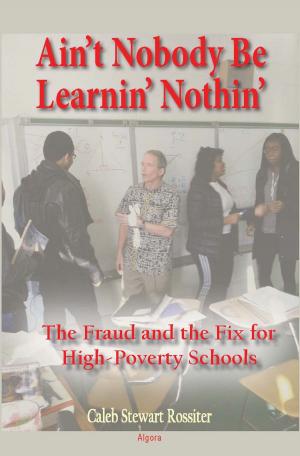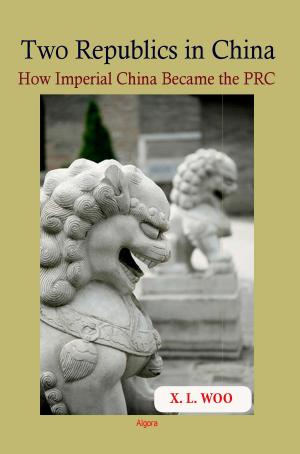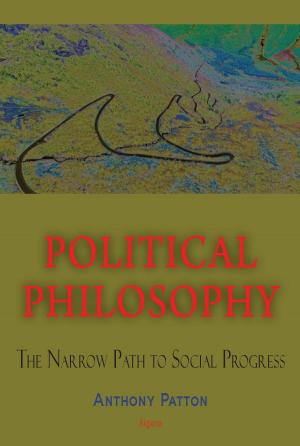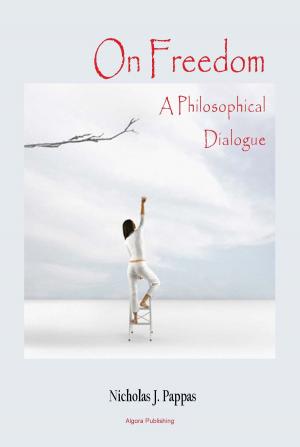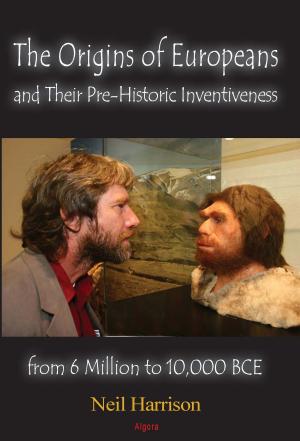Rush
Life, Liberty, and the Pursuit of Excellence
Nonfiction, Entertainment, Music, Pop & Rock, Rock, Music Styles| Author: | Robert Freedman | ISBN: | 9781628940862 |
| Publisher: | Algora Publishing | Publication: | January 5, 2015 |
| Imprint: | Algora Publishing | Language: | English |
| Author: | Robert Freedman |
| ISBN: | 9781628940862 |
| Publisher: | Algora Publishing |
| Publication: | January 5, 2015 |
| Imprint: | Algora Publishing |
| Language: | English |
The book is a systematic look at the Aristotelian philosophy embedded in the band's lyrics over its 40-year recording career.
Although the topic of the book is academic, the writing is sharp, down-to-earth, and leavened with a dry wit. Anyone interested in the band's music, popular culture, and philosophical ideas simply explained will enjoy this entertaining and thought-provoking work.
As a cultural phenomenon, Rush is worthy of serious study, and although other books have looked at the philosophical character of the band's music, this is the first time the music over the band's entire 40-year career is demonstrated to fall under a single, unified theory: Aristotelian individualism.
Even readers who have pored over earlier books on Rush will enjoy this unifying theme. 'Rush, Rock Music and the Middle Class' (by Chris McDonald), says Rush is an avatar of middle class values. While the work ethic and value structure of the middle class is part of the band's philosophy, that is just a subset of the band's Aristotelianism, as shown by Robert Freedman here. The unified Aristotelian philosophy is also different from what's discussed in 'Rush and Philosophy' (edited by Durrell Bowman and Jim Berti) looks at the band's music through multiple philosophical filters and no attempt is made to look at the music through a single, unifying lens. Another book that studies Rush lyrics, 'Mystic Rhythms' (Carol Selby Price ad Robert M. Price), provides an interpretation of selected lyrics but does not systematically look at any philosophy. Rather, it approaches the lyrics as literary analysis and provides no overarching theoretical framework.
The book is a systematic look at the Aristotelian philosophy embedded in the band's lyrics over its 40-year recording career.
Although the topic of the book is academic, the writing is sharp, down-to-earth, and leavened with a dry wit. Anyone interested in the band's music, popular culture, and philosophical ideas simply explained will enjoy this entertaining and thought-provoking work.
As a cultural phenomenon, Rush is worthy of serious study, and although other books have looked at the philosophical character of the band's music, this is the first time the music over the band's entire 40-year career is demonstrated to fall under a single, unified theory: Aristotelian individualism.
Even readers who have pored over earlier books on Rush will enjoy this unifying theme. 'Rush, Rock Music and the Middle Class' (by Chris McDonald), says Rush is an avatar of middle class values. While the work ethic and value structure of the middle class is part of the band's philosophy, that is just a subset of the band's Aristotelianism, as shown by Robert Freedman here. The unified Aristotelian philosophy is also different from what's discussed in 'Rush and Philosophy' (edited by Durrell Bowman and Jim Berti) looks at the band's music through multiple philosophical filters and no attempt is made to look at the music through a single, unifying lens. Another book that studies Rush lyrics, 'Mystic Rhythms' (Carol Selby Price ad Robert M. Price), provides an interpretation of selected lyrics but does not systematically look at any philosophy. Rather, it approaches the lyrics as literary analysis and provides no overarching theoretical framework.

